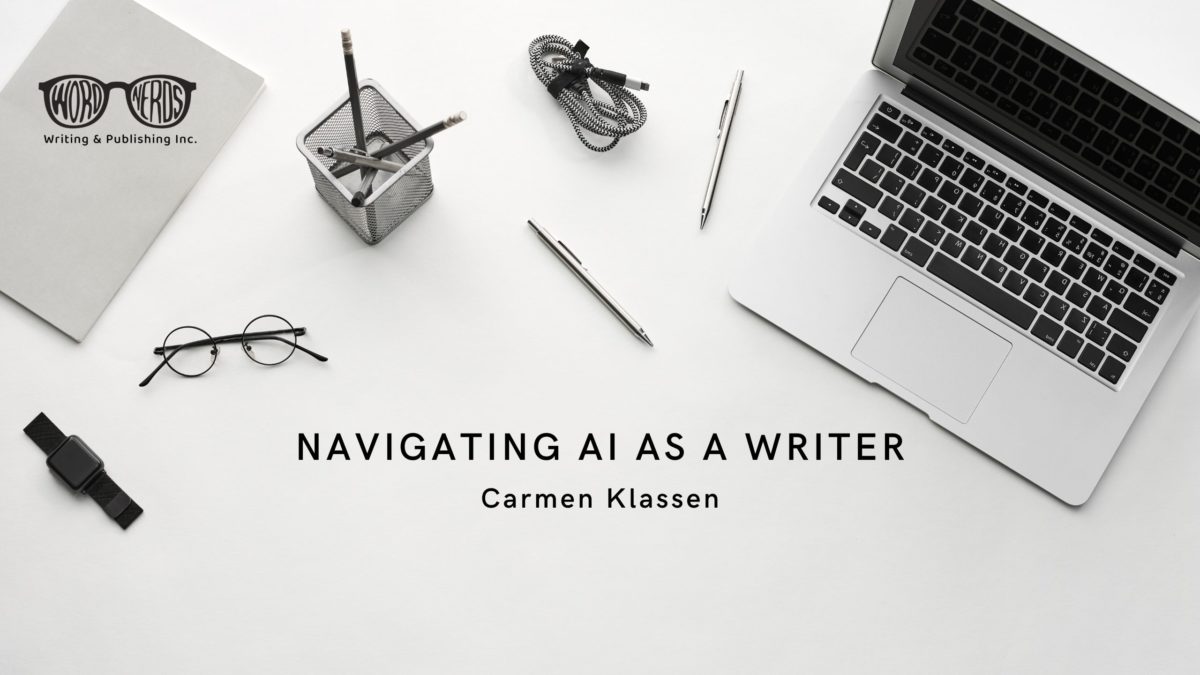As a writer, I’ve been covertly using AI for years through things like ProWritingAid and Grammarly (editing software). So, I’m entering the AI conversation with a bias towards it. AI has made me a better writer.
But I’m also keenly aware of AI’s shortcomings. I use both ProWritingAid AND Grammarly for editing because they can miss errors (or I can miss seeing them on their platform). With the two together, I’m very close to error-free writing.
I was quick to set up an OpenAI account (the company that runs ChatGBT), but a little slow to understand how to make it work for me.
What I’m finding as I experiment with AI in my writing is echoed by many others. So far, AI is great for generating ideas, giving an outline, and offering options to reword an awkward sentence or paragraph. But AI is missing the human touch. The feeling behind the writing.
AI Writing is Good, But Not Amazing
For example, I didn’t know how to start this article. So, I asked ChatGBT for an opening paragraph and got this response:
🚀 Exciting times in the world of writing and artificial intelligence! 📚✨ As a writer, I’ve always been fascinated by the power of words and the way they can shape our understanding of the world. But with the rapid advancement of AI technology, we find ourselves at the crossroads of creativity and innovation.
It’s OK for an opening paragraph. But it’s not me. What it offered was a launching point that I could customize. And it saved me 10-15 minutes of starting and stopping dozens of intros until I got to one I liked (which I later edited out completely).
I think that’s where AI is the most helpful—idea generation. It’s like having a creative (but kind of dry) collaborator in the room with me who’s always ready to contribute ideas.
AI Writing is Language Prediction, Not Information Verification
When it comes to research, I’ve had varying success using ChatGBT. Sometimes it’s bang on, and super helpful. Other times, it throws in some information that’s completely wrong. That’s when I remember that it’s a language generator and not a knowledge hub.
So, that collaborator in the room will answer any question I have, but those answers need to be verified. It still saves time, though. I’d much rather ask ChatGBT about something and then check the sketchy answers than ask Google and click through a dozen sites trying to find the right answer.
With all AI (including paid versions) there are still the questions of security and ownership of AI-generated content that I don’t have answers to. I’m using two rules in all my work for now, and I’ll need to adapt as AI develops and as I learn more.
Writing with AI Rule #1: Be Careful What You Input
My first rule is that I never input any confidential, proprietary, or company info into any AI prompt except to access general information.
For example, I’ll ask ChatGBT to give me a summary of Word Nerds Writing and Publishing Inc (that’s my company). But I wouldn’t tell it to write a proposal from Word Nerds to Company X for Service Y. Instead, I’d ask for a proposal written by a content services company to another company, giving general descriptions.
Then, I’d take that information into a separate document, add in relevant details, and customize it to have my voice and USP.
Writing with AI Rule #2: Make it Special
There’s no copy-paste-send happening with AI-generated content. There’s copy-paste-edit-edit-insert-write-edit-delete-edit-send. The human connection is the part that’s missing from AI-generated content. Fortunately, that’s what I bring as a writer.
I know what my client wants to communicate to their audience. I know how to polish that information for their specific audience. And that’s what I love to do.
Of course, AI will get better at generating usable content. As that happens, I’ll adjust my approach as needed. I don’t think AI is going anywhere, so I need to learn the tools available and use them to provide the best possible writing for my clients.
Bonus: What about kids in school? Should they be allowed to use AI? I think they absolutely should—but only after being taught about how AI generates content, what it does with the data you input, and (super important) how to use critical thinking skills to evaluate what AI provides.

